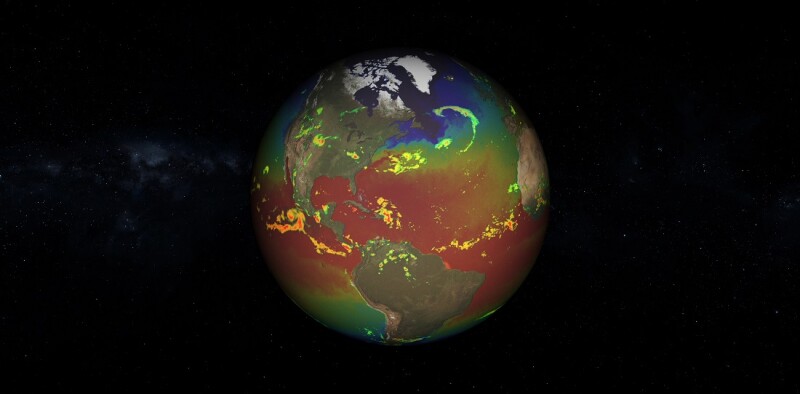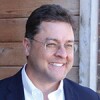I was arrogant and selfish to dismiss an entire collegial branch of science. After so many years learning and living within the petroleum industry—and finally developing a line of sight to my own grandchildren—I decided I should give climatology a fairer hearing.
Decades ago, my dad led our Baptist church, and his best friend captained a petroleum engineering firm. His friend became my mentor, and the two of them set me on the path to petroleum engineering while I was still in high school. In turns, they also inculcated a sense of loyalty to what is right above what is expeditious. Between my work in litigation support and my leaving a job over an ethical disagreement, individual projects challenged my intellectual and behavioral ethics, but I always lived in the petroleum-red community of Texas. And I always had faith in our industry.
So much faith, so much knowledge, so much socialization that I never gave climate science much attention or credit. The nascent field only grew as I grew from childhood, and it came to its maturity only later as my maturing career insulated me.
When I was 6 years old, the opening scene of Star Wars scared me to tears. Two years later, several hundred meteorologists convened for the first time formally to discuss and debate the possibility of human impact on weather patterns. Some loud and polarized voices had prognosticated before then; some argued for warming and some for cooling. Like so many committees I’ve seen since, the 1979 group agreed merely to recommend further study.
The first consensus statement from the emerging field came the year I entered college, literally at the same time I took Geology 101. The committee worded its conclusion as cautiously as I would later learn to do as an expert witness: “Many questions remained, and there was lots of uncertainty.” Still, it was “our judgment” that the world was probably warming because of human actions and that it could threaten future wellbeing. Meanwhile, I was learning about 500 million years of global change and learning how to make a living. What did I care?
Marriage, children, business divorce, more kids, parents’ divorce, new job, and new house kept me so busy that the next time I paid attention to the maturing climate science was so-called Climategate in 2009 when emails of a couple of prominent climate scientists were released and appeared to show them exaggerating or falsifying conclusions. Another anchor dropped in my mind, even though I didn’t read past the initial article or two.
The steepest challenge to arriving at a reliable engineering answer is fighting a platoon of camouflaged internal biases.
Litigation support, concerns about shale production forecasts, giving and receiving cross-examination, and contrarian views on cherished development projects more than challenged my analytical skills but did nothing for my understanding of the planet. As steep as the technical questions sometimes were, my engineering practice made me realize that the biggest hurdle to arriving at a reliable answer is not, in fact, the quality and quantity of data or the intellectual power to process it. The steepest challenge to arriving at a reliable engineering answer is fighting a platoon of camouflaged internal biases.
Heuristics can be hugely valuable, and humanity’s origins have hardwired mental shortcuts into reasoning. Intellect does not immunize against bias. Instead, social science has shown that greater intelligence allows for more “motivated” reasoning and not more objective reasoning. That is, deeper analysis but not necessarily more reliable. Reliable answers are sometimes reached with motivated reasoning, but more courageous analysis makes for patterns of better outcomes. I have come to believe that the rarest and most valuable mark of an expert is not deep analysis but ruthless questioning of one’s own thinking.
I have come to believe that the rarest and most valuable mark of an expert is not deep analysis but ruthless questioning of one’s own thinking.
Digging deeply into both internal biases and external problems requires prolonged effort, and some questions merit the effort. By this time, unlike my early years, I also had so much at stake, so much to overcome. I could deftly dismiss and disregard climate science and its recommendations for action with full support from my community and not divert energy from my still-busy life.
When a company wants to launch a half-billion-dollar development program or when a client might be forced to cough up a billion dollars of damages, the questions deserve the effort. The question of how best to supply the foundational energy needs of 8 billion folks seems to me a worthy question, especially since those billions include my own children and grandchildren.
When I looked again at the headlines of climatology—accepting from the start that I might have arrived at an unreliable conclusion the first time—I found that my anchors were not, in fact, weighty evidence. True, the planet’s climate has changed over timescales ranging from centuries to mega-anna and were caused by an array of factors, but none of those applies to the modern era. Forty and 70 years ago, individual scientists held widely disparate and sometimes passionate perspectives on whether the balance of anthropogenic forces—namely particulate reflectance and greenhouse gases—would cool or heat humanity’s home (or neither). Uncertainty ran high when the science was young and while major air-quality legislation in the 1970s and 1980s was changing the trajectory.
Still, the hugely diverse community of climate scientists worked the issues like my own community of scientists has worked our technical questions: honestly seeking the unknown and trying to find some aspect not previously considered or understood. Of this community of tens of thousands, the couple initially implicated by Climategate were subsequently vindicated by seven independent investigations. It turns out that the emails released were a fraction of the total number hacked and stolen. It was a collection curated and timed to manipulate public opinion around the COP climate conference in Copenhagen.
I found that, as the science matured, the range of opinions slowly converged. Massive rotating committees and even more reviewers carefully, systematically, and progressively strengthened their conclusions. By analogy to my own field of study, the projected outcomes moved from Resources to Possible Reserves and now all the way to Proved Developed Producing.
I am still not a climate expert, but I do know about analyzing complex and uncertain natural systems in high-stakes situations. When I was willing to look at climatology and willing to see its answers, I found that widespread and earnest scientific inquiry had developed an extraordinary set of data, approached the problem comprehensively, exercised extensive checks and balances, and arrived at a shared understanding with a reasonable range of uncertainty. In short, I was biased, and I was wrong. I see now that the headline conclusions of climatology are reliable. And actionable.


